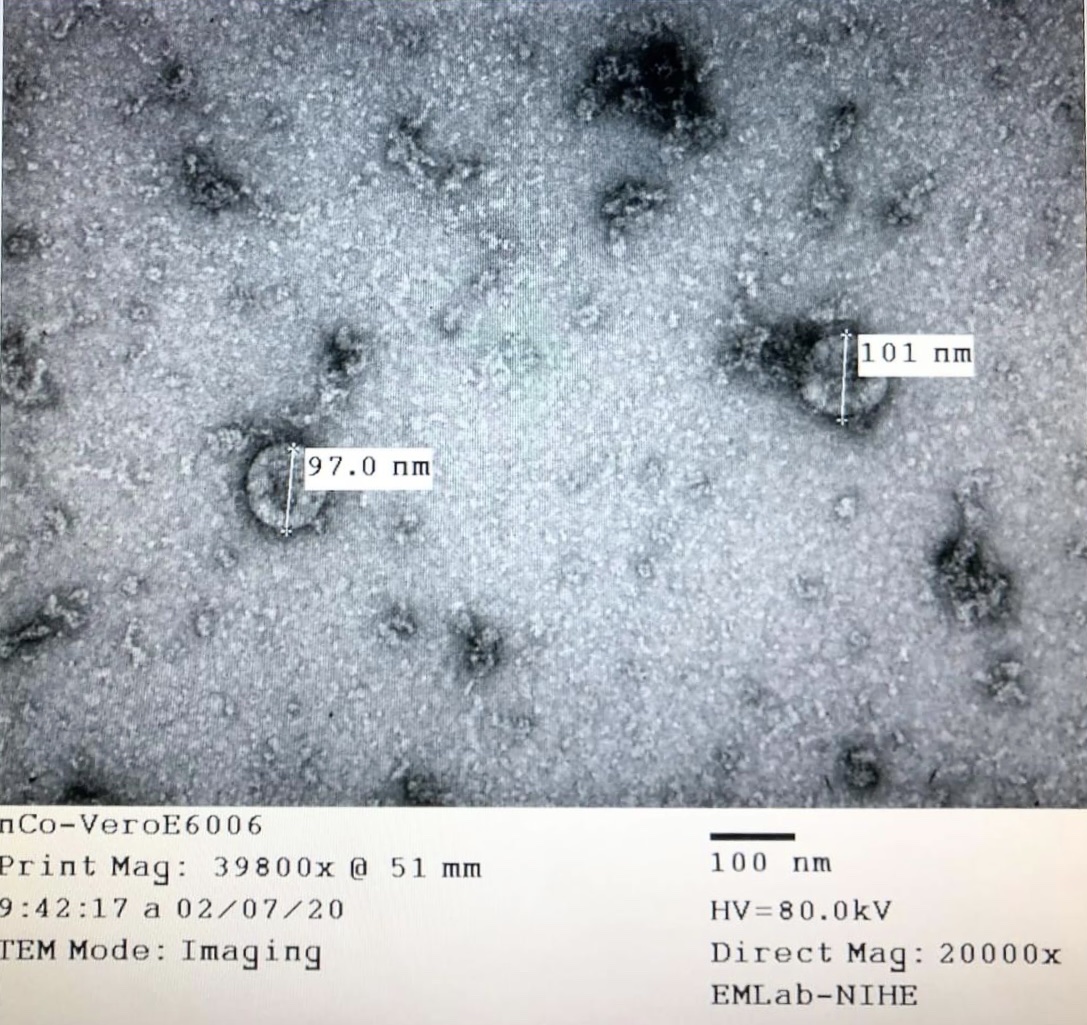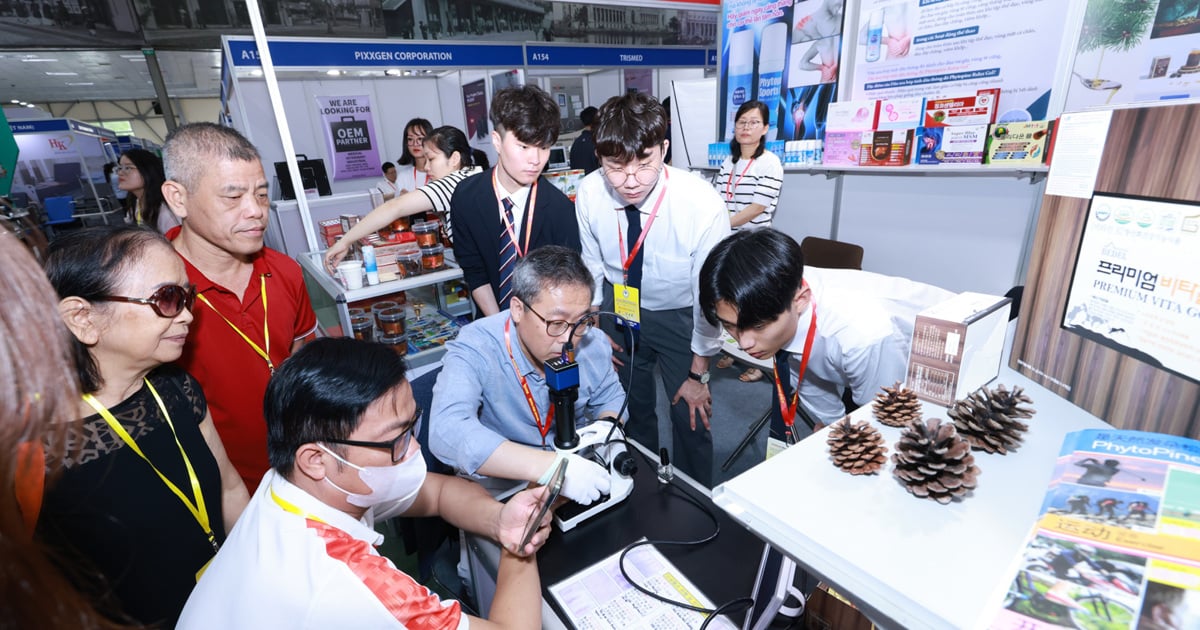Assessment of SARS-CoV-2 mutations
On the morning of February 2, the Ministry of Health held a press conference to provide medical information for the first quarter of 2024 and activities towards the 69th anniversary of Vietnamese Doctors' Day, February 27.
Speaking at the meeting, Deputy Minister of Health Nguyen Thi Lien Huong said: "Strengthening medical work during the Lunar New Year and the 2024 spring festival season is one of the key tasks of the sector in the first months of this year."
Regarding the developments of the Covid-19 epidemic, Dr. Nguyen Luong Tam, Deputy Director of the Department of Preventive Medicine (Ministry of Health), quoted the World Health Organization (WHO) as saying that new variants of SARS-CoV-2 are constantly changing. Variant JN.1 (the BA.2.86 sub-branch variant of Omicron) is the latest variant recorded, which has increased rapidly globally.
The country has recorded cases of JN.1 infection among hospitalized Covid-19 patients. Research units continue to collect samples of Covid-19 patients, isolate viruses, and sequence genes to closely monitor changes in SARS-CoV-2; and cooperate with scientists from other countries to assess changes in the virus.
WHO assesses that infectious diseases in the world are still complicated, especially diseases transmitted through the respiratory tract.
Given the fact that the JN.1 variant is dominant in many countries, WHO notes that this variant has the ability to evade immunity, but there is no evidence of increased severity compared to previous variants and the public health risk is still assessed at a low level at the global level.
The number of SARS-CoV-2 infections in particular and other respiratory diseases in general is forecast to increase in the coming time, especially in countries entering winter, which may increase the number of cases requiring hospitalization at medical facilities.
WHO monitoring shows that the number of Covid-19 hospitalizations in December 2023 increased by 42% compared to the previous month.
Risk of disease invasion and infectious disease outbreak
The Ministry of Health noted that the Northern region is in the winter-spring period, the erratic weather changes are the cause of the emergence and spread of infectious diseases, especially respiratory diseases, with the potential risk of infectious disease outbreaks.
Nationwide, this is also the time when the demand for trade and tourism at the end of the year increases, creating favorable conditions for pathogens to spread, which can increase the number of infectious diseases and respiratory diseases, especially in high-risk groups such as children with weak resistance, the elderly, and people with underlying medical conditions.

Domestic scientists conduct gene sequencing, evaluate SARS-CoV-2 mutations
National Institute of Hygiene and Epidemiology
The Ministry of Health requests the People's Committees of provinces and cities and requires units in the whole sector to pay special attention to monitoring and responding to infectious diseases: monitoring, supervising, early detection, timely and thorough handling of infectious disease outbreaks, not allowing them to spread and break out widely in the community.
Strengthen inspection and disease surveillance at border gates to promptly detect and isolate suspected cases and cases of infectious diseases, preventing the disease from entering and spreading into Vietnam; have plans ready to respond to epidemic situations.
Hospitals under the Ministry of Health must improve their admission and treatment capacity; review facilities, develop and implement plans to ensure adequate human resources, medicines, blood, infusion fluids, supplies, chemicals, medical equipment, and medical oxygen; and prepare emergency plans for events with large crowds.
Over time, SARS-CoV-2 has continuously mutated to create new variants, the most recent being the JN.1 variant.
Based on changes in virus characteristics, transmission, severity, or effectiveness of vaccines, treatments, and diagnostics, WHO classifies SARS-CoV-2 variants into four groups: variants of concern; variants of concern; variants under surveillance, and variants with serious consequences.
In Vietnam, the Covid-19 epidemic is still under control. The number of recorded cases is low, scattered in some localities and most of them have mild symptoms or are asymptomatic; the number of hospitalized cases and the number of severe patients in treatment facilities is low.
According to statistics from the domestic epidemic surveillance system, in recent weeks, an average of 50-55 Covid-19 cases have been recorded per week. Most cases have mild symptoms. 90 Covid-19 patients are being treated at medical facilities.
The results of pathogen surveillance have not yet recorded any new or unusual variants.
Source link


![[Photo] Unique folk games at Chuong Village Festival](https://vstatic.vietnam.vn/vietnam/resource/IMAGE/2025/4/10/cff805a06fdd443b9474c017f98075a4)

![[Photo] Phuc Tho mulberry season – Sweet fruit from green agriculture](https://vstatic.vietnam.vn/vietnam/resource/IMAGE/2025/4/10/1710a51d63c84a5a92de1b9b4caaf3e5)
![[Photo] Prime Minister Pham Minh Chinh chairs meeting to discuss tax solutions for Vietnam's import and export goods](https://vstatic.vietnam.vn/vietnam/resource/IMAGE/2025/4/10/19b9ed81ca2940b79fb8a0b9ccef539a)
























































































Comment (0)